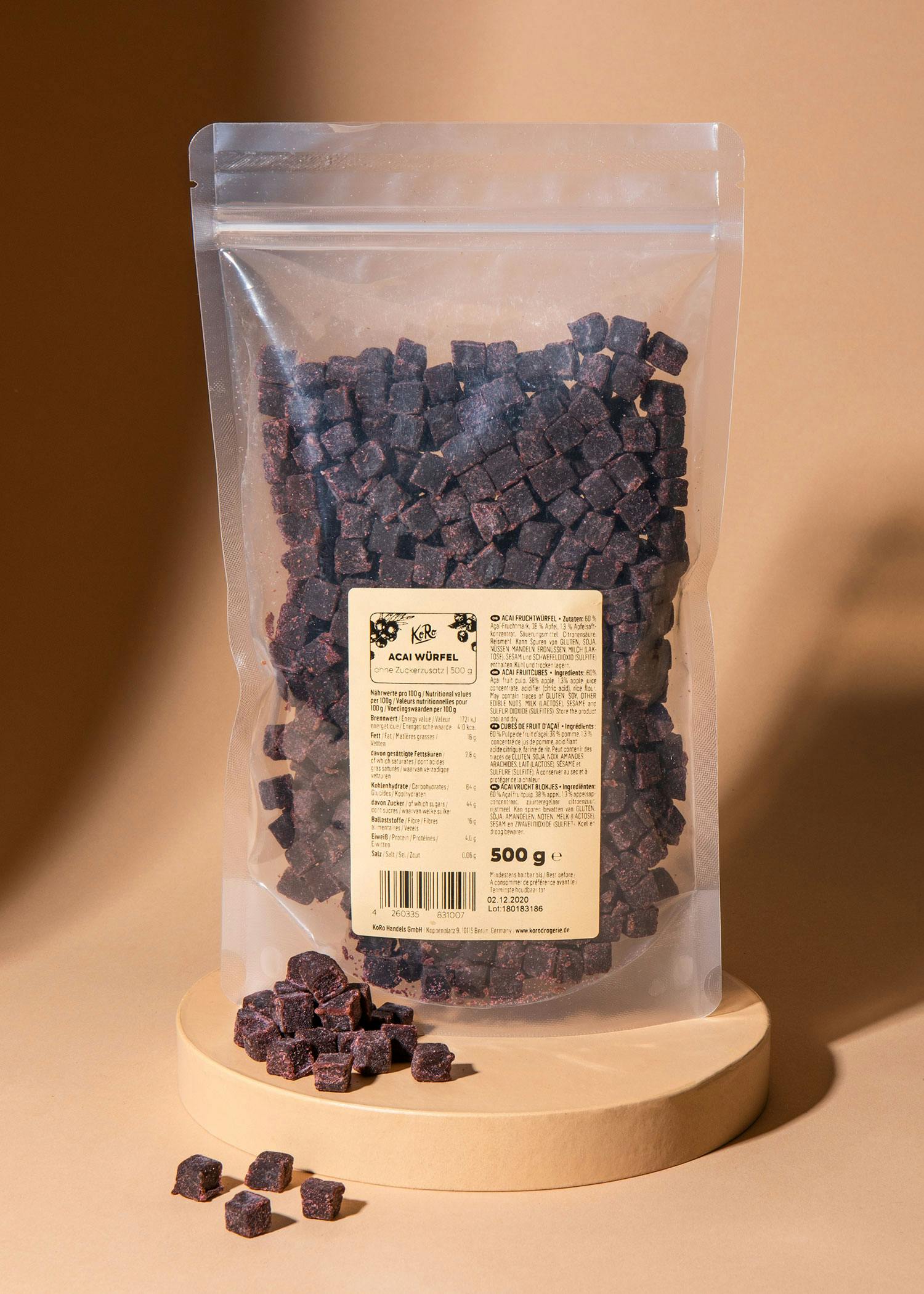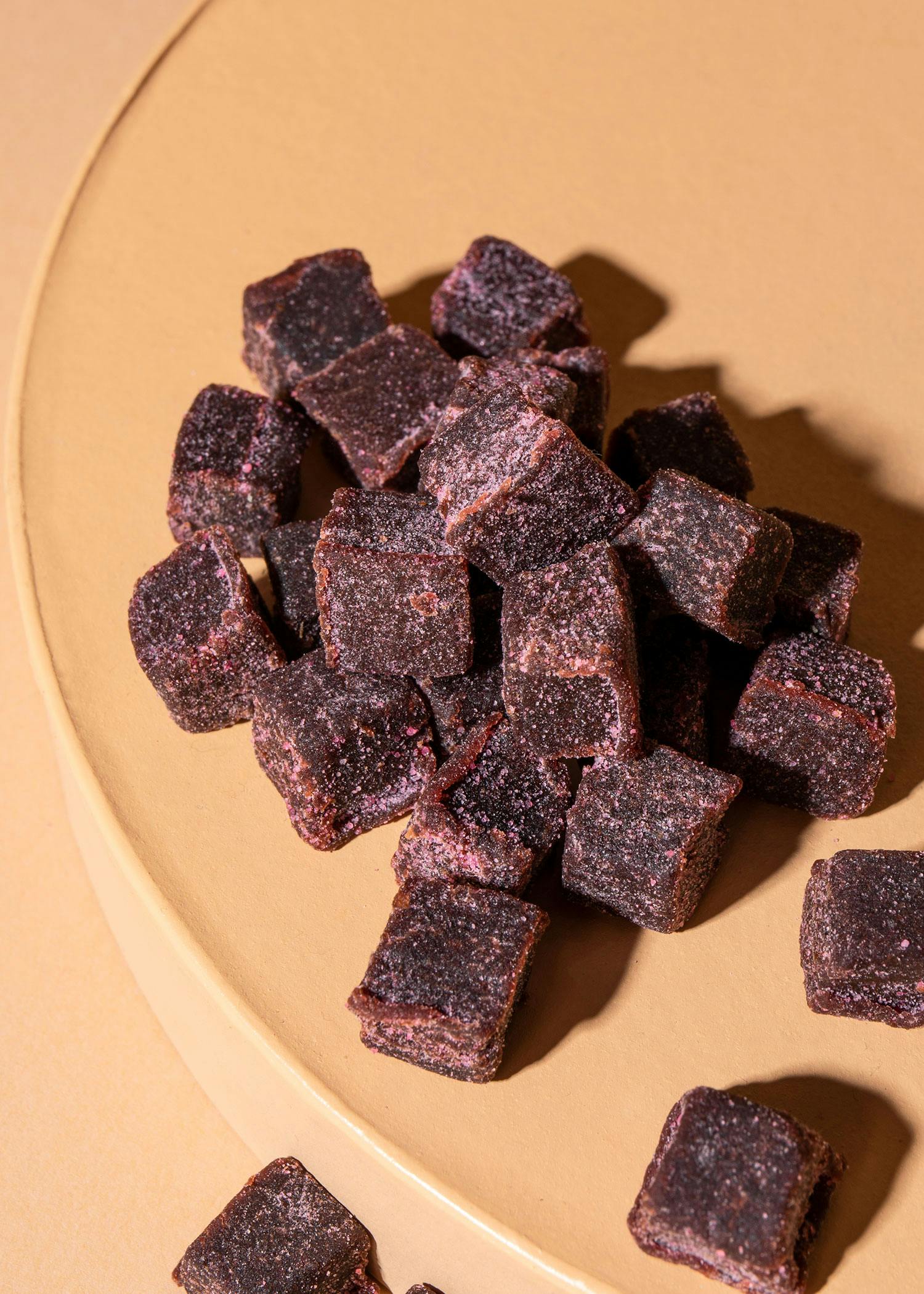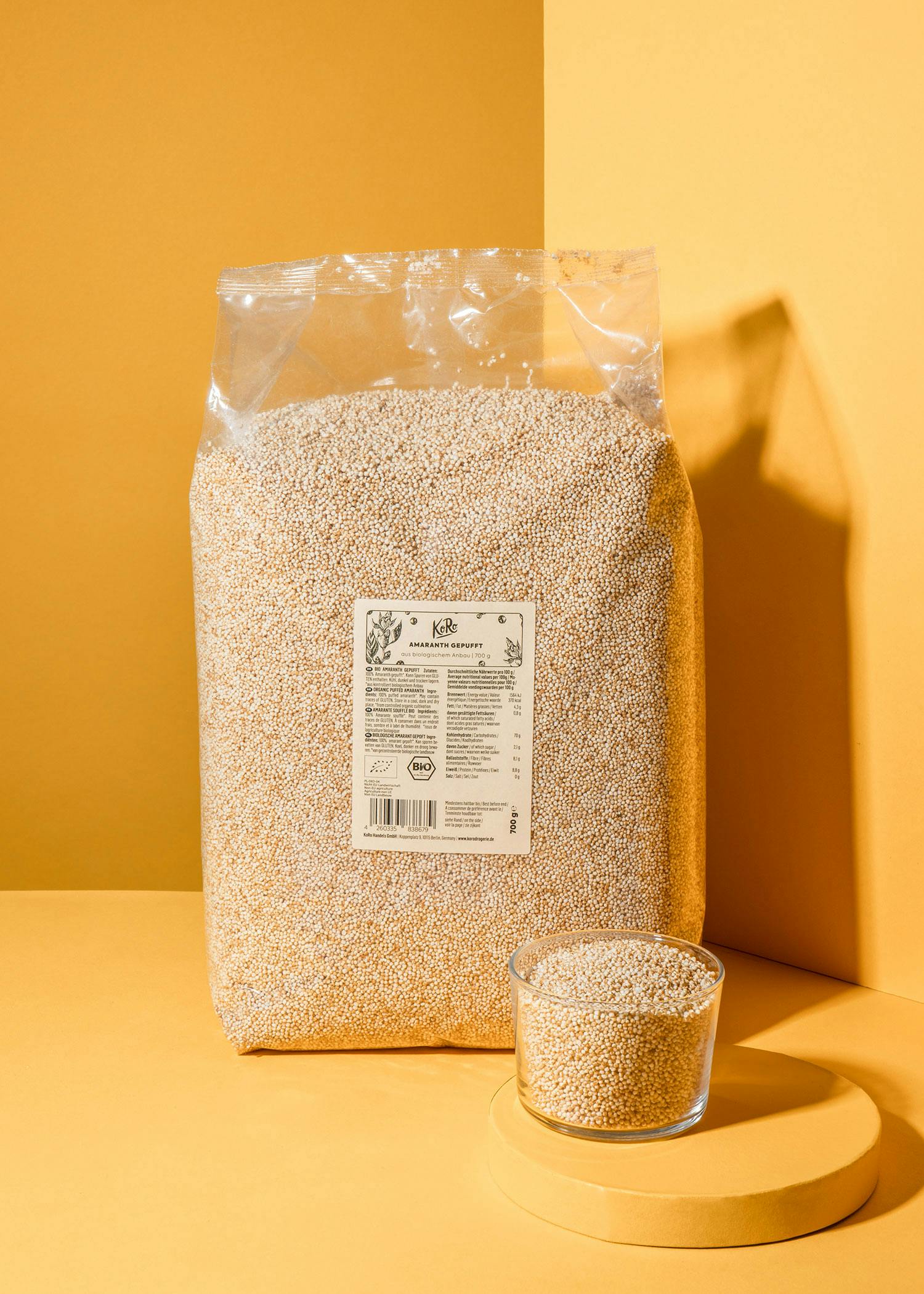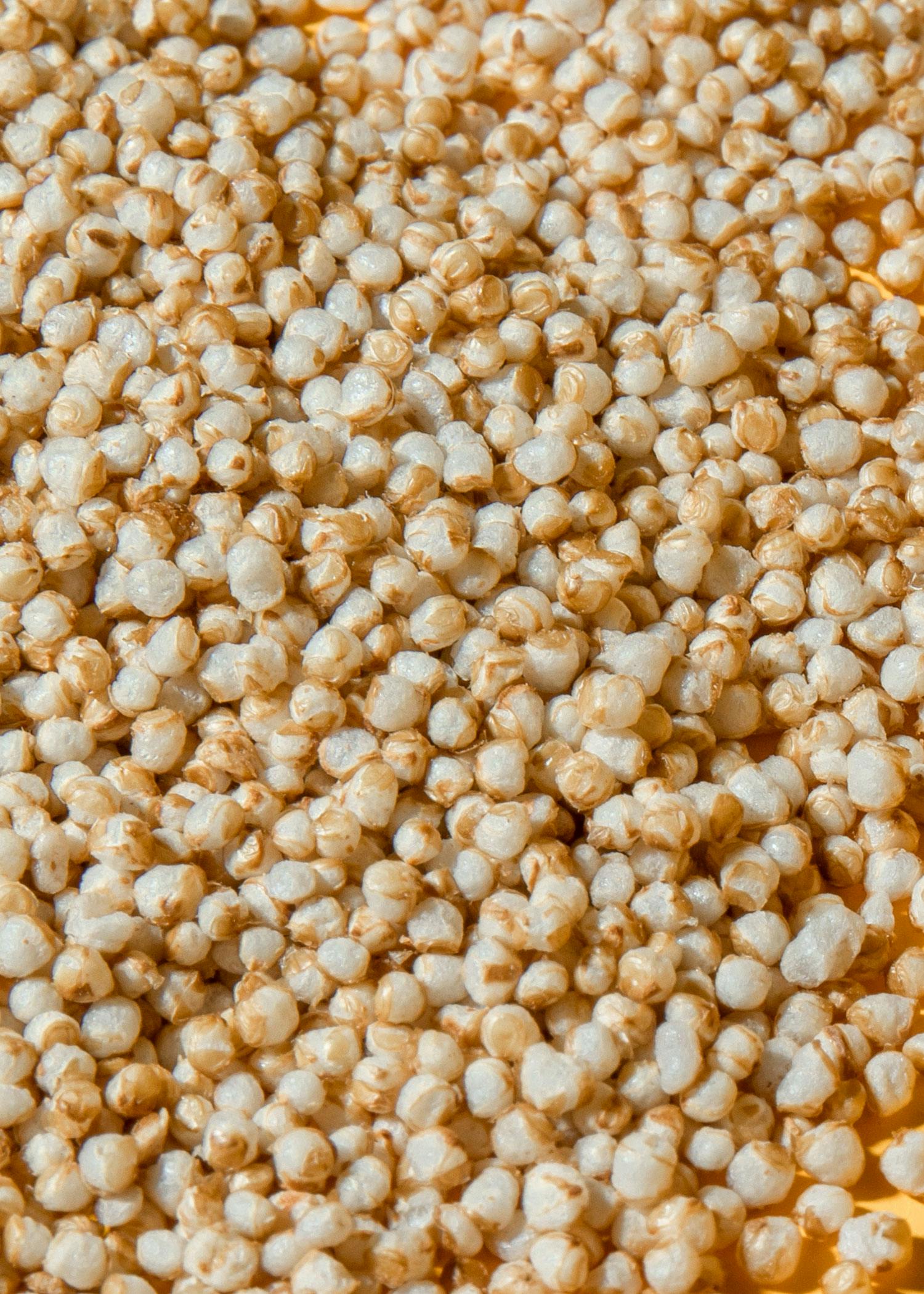While our mouths are watering, we're still wondering: What is açai anyway? Why are açai bowls so popular? And how can you easily make your own bowl? Find out everything about the new trendy breakfast here!
What is açai?
Açai is a type of berry from South America. It has long been considered a superfood among surfers there and looks like a cross between a blueberry and a grape. The taste of açai is reminiscent of dark chocolate and is described as earthy and berry. Overall, the ripe açai berry is said to be moderately tasty. However, açai is bursting with antioxidants. These are responsible for the dark color of the açai berry and offer the body protection against so-called "free radicals". They are also full of fiber, calcium, vitamins C and B3, as well as omega fatty acids. The berries stimulate your digestion and metabolism and support your mental performance - perfect for a good start to the day!
What does an açai bowl consist of?
A classic açai bowl is based on a kind of cold açai porridge that resembles ice cream. It can be mixed with various ingredients and an infinite number of toppings form the crowning touch. Basically, anyone can create their own bowl to their heart's content and the internet is full of delicious recipe ideas.
How can you make your own açai bowl?
Classic açai bowls are made with frozen fruit puree, bananas and almond milk. Sometimes agave syrup or an alternative sweetener is added. Frozen fruit puree is difficult to find in Germany. Powder or normal puree are therefore a good alternative.
Here is a basic recipe for a delicious açai bowl:
Ingredients:
- frozen banana pieces
- Frozen berries (e.g. blueberries, blackberries, raspberries, etc.)
- açai powder
- Agave syrup or maple syrup to taste
- Almond milk (or another plant-based milk alternative)
Preparation:
Place all ingredients in a high-speed blender and blend until creamy. Alternatively, you can mix the ingredients in a bowl with a hand blender. Depending on how you want the consistency
-
simply vary the quantities. Is the açai bowl too runny? Then you can simply add more frozen fruit.What toppings do you use on your açai bowl?
There are no limits to your creativity when preparing your açai bowl! You can use anything from fresh and dried fruit to nuts and seeds. Popular are e.g: Coconut chips, cocoa nibs, amaranth, chia seeds and goji berries. Served in a coconut bowl, the power breakfast looks even better!
How can you prepare a bowl without açai?
Don't panic if you don't have any açai powder to hand. Strictly speaking, an açai bowl is nothing more than a smoothie bowl. You can simply replace the açai powder used with other fruit powders (e.g. raspberry powder or freeze-dried strawberry powder) and conjure up a breakfast that not only looks just as good, but also tastes at least as good!
So have fun trying it out! If you have a great recipe idea of your own, feel free to post it on Instagram and tag us with #korolicious.



